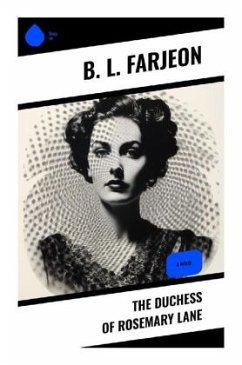
The Heart of Penelope
Versandkostenfrei!
Versandfertig in 6-10 Tagen
9,99 €
inkl. MwSt.

PAYBACK Punkte
5 °P sammeln!
In "The Heart of Penelope," Marie Belloc Lowndes weaves a captivating narrative that examines the themes of desire, betrayal, and the intricate dynamics of love. Set against the backdrop of early 20th-century England, the novel is celebrated for its rich prose and psychologically complex characters. Lowndes employs vivid imagery and a lyrical writing style that evokes the emotional landscape of her protagonists, particularly the titular Penelope, whose heart becomes the focal point of a compelling moral quandary. The book also explores the societal pressures and expectations placed upon women ...
In "The Heart of Penelope," Marie Belloc Lowndes weaves a captivating narrative that examines the themes of desire, betrayal, and the intricate dynamics of love. Set against the backdrop of early 20th-century England, the novel is celebrated for its rich prose and psychologically complex characters. Lowndes employs vivid imagery and a lyrical writing style that evokes the emotional landscape of her protagonists, particularly the titular Penelope, whose heart becomes the focal point of a compelling moral quandary. The book also explores the societal pressures and expectations placed upon women during this era, inviting a critical examination of gender roles and emotional autonomy. Marie Belloc Lowndes, an influential novelist and playwright, was a prominent figure in the literary scene of her time, well-known for her keen insight into human psychology. Born into a literary family and influenced by her experiences living in London, Lowndes developed a fascination with the intricacies of the human heart. Her expansive body of work often reflects her interest in mystery and social commentary, making her an astute observer of the human condition, which is vividly portrayed in "The Heart of Penelope." Readers who appreciate richly textured narratives and psychological depth will find "The Heart of Penelope" a rewarding exploration of the complexities of love and identity. This novel not only offers an engaging story but also challenges its audience to reflect on the moral dilemmas faced by its characters. Lowndes's masterful storytelling and acute social critique render this work a significant contribution to early 20th-century literature, making it a must-read for those interested in both literary and feminist discourse.












